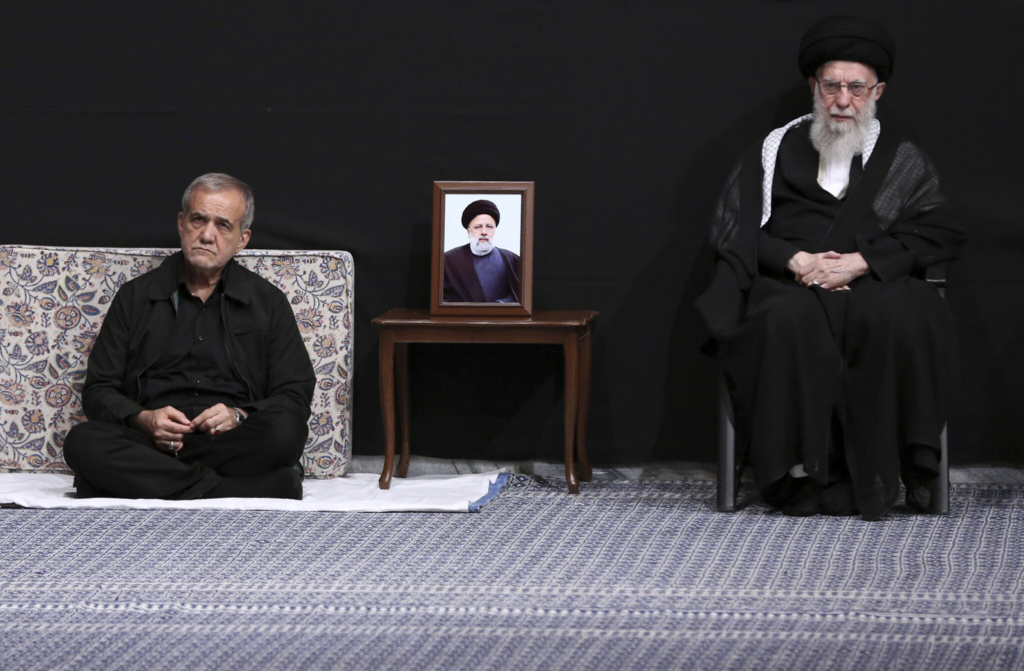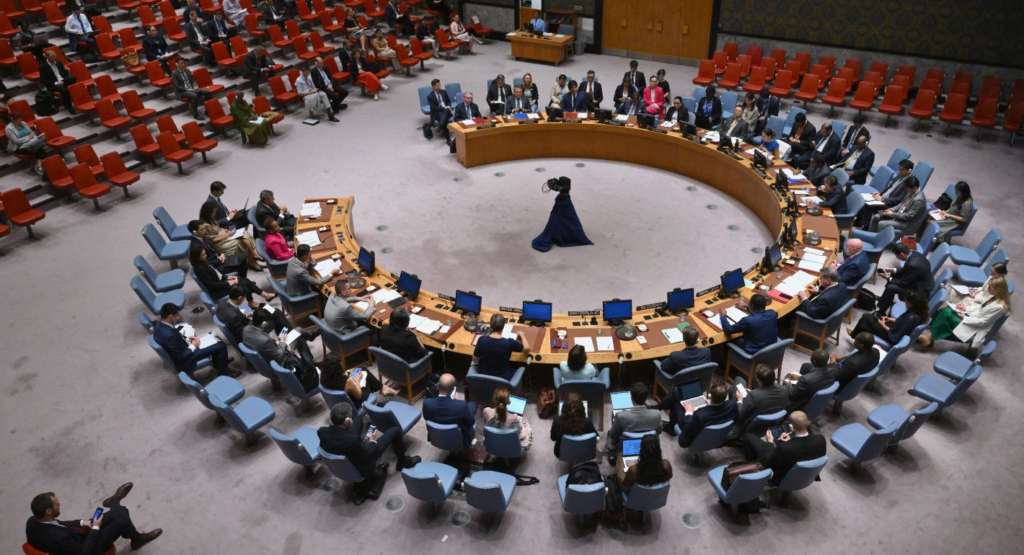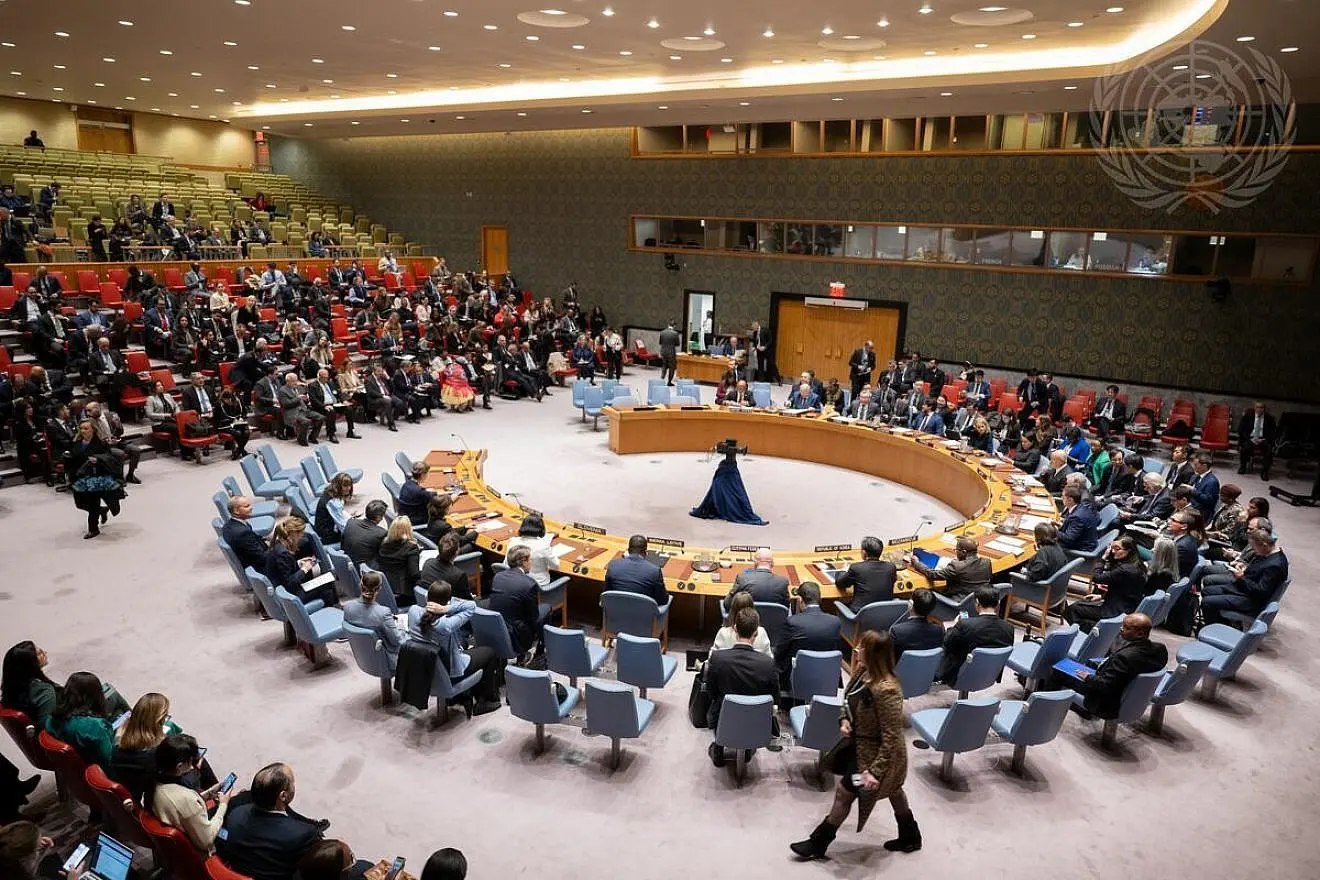In the escalating tension between Israel and Iran, the United Nations Security Council (UNSC) has been called to an emergency session, set to convene on Monday, at Iran’s request.
The call, endorsed by China, Russia, and Algeria, comes in response to a series of Israeli airstrikes on Iranian military installations across Tehran, Khuzestan, and Ilam provinces, which left four Iranian military personnel and a civilian dead.
The retaliatory strikes followed Iran’s alleged missile assault on October 1, intensifying the longstanding and complex hostilities between the two nations. The UNSC’s chair, Switzerland, has confirmed that the meeting will consider Iran’s appeal for a decisive response to what it describes as “systematic aggressions” from Israel.
Iran’s Call to the International Community for Action Against Israel
Iranian Foreign Minister Abbas Araghchi’s call to the UNSC underlines Iran’s demand for a clear international stance against Israel’s repeated aggressions. In a formal address to both the UN Secretary-General and the UNSC President, Araghchi described the airstrikes as a violation of international law and a threat to regional stability.
He called upon the council to condemn Israel’s actions decisively, asserting that Israel’s recent actions not only threaten Iran’s sovereignty but also pose broader risks to Middle Eastern stability.
Iran’s appeal to the UNSC is significant because it showcases Iran’s emphasis on the need for collective international action and signals Tehran’s hope to prevent further escalations through diplomatic avenues.
Read : Iran Supreme Leader Khamenei’s Hebrew X Account Suspended
The situation is further complicated by the differing perspectives among UNSC members. Russia and China, both vocal allies of Iran, have backed Tehran’s request, indicating their support for a resolution or statement condemning Israel’s actions.
Given Israel’s robust alliances with the United States and some Western nations, the session is expected to bring intense deliberations on how, or whether, to officially address the conflict.
Read : Masoud Pezeshkian Wins Presidential Election in Iran
Araghchi’s letter also highlighted Israel’s actions in Gaza and Lebanon, which he labeled as “brutal war crimes.” This statement underscores the broader regional implications of the Israel-Iran conflict and reflects Iran’s frustration with what it sees as a lack of accountability for Israel’s actions across multiple fronts.
These accusations come amid the ongoing humanitarian crisis in Gaza and growing international calls for Israel to halt its military operations there. By connecting its grievances to the wider region, Iran is pushing for a holistic international response to what it considers a pattern of aggression from Israel.
Supreme Leader Ayatollah Khamenei’s Strategic Warning to Israel
In a rare public statement, Iran’s Supreme Leader Ayatollah Seyyed Ali Khamenei addressed the recent events, offering a nuanced perspective on Israel’s airstrikes. Khamenei urged Iran’s authorities to neither exaggerate nor downplay the attacks, arguing that the strikes should be presented to the public in a balanced light.
His statement seems aimed at cautioning Iran against overreaction while simultaneously asserting that Israel’s actions cannot go unanswered. This diplomatic positioning reflects a strategic approach to both domestic and international audiences, emphasizing Iran’s capability and readiness to defend itself without signaling an escalation into a full-scale conflict.

Khamenei’s remarks also included a rebuke of Israel’s understanding of Iran’s strength, suggesting that Israeli policymakers may have “miscalculated” Iran’s resilience and determination. By stating that Israel “does not yet understand the country or its people,” Khamenei highlighted Iran’s stance that it has the capability to deter further aggression.
Khamenei’s call for measured retaliation illustrates his desire for a calculated response that deters future attacks without igniting a larger confrontation. His statement signals that Iran may adopt indirect or symbolic measures in retaliation, seeking to protect its strategic interests while avoiding unnecessary escalation.
Alongside his commentary on Israel’s military actions, Khamenei criticized the global community, including the United Nations, for its perceived failure to prevent Israeli actions in Gaza and Lebanon.
His critique implies dissatisfaction with the international community’s perceived inability to hold Israel accountable for its military campaigns, which he described as war crimes. This rhetoric not only reinforces Iran’s position but also seeks to cast Israel as an aggressor on multiple fronts.
By focusing on the broader regional implications of Israel’s actions, Khamenei appears to be framing the conflict in terms of both Iranian and Palestinian grievances, aligning Iran’s narrative with a broader resistance against perceived Israeli expansionism.
Israel’s Counterpoint and Iran’s Response: A Dangerous Balance
Israel’s justification for the strikes on Iran hinges on Tehran’s alleged missile attack on October 1, which it asserts threatened Israeli interests. The Israeli government’s position is that the airstrikes were a limited response aimed at addressing a clear and immediate threat, stating that it “concluded” the mission as a defensive measure.
According to Israeli sources, the October 1 attack represented a critical escalation from Iran, warranting a rapid and decisive response to neutralize specific Iranian military assets that posed a danger. Israel’s actions reflect its longstanding doctrine of proactive defense, particularly regarding potential missile threats from Iran, which it views as existential.
Following the strikes, Iran’s air defense reportedly intercepted several Israeli missiles, mitigating damage to its military bases and infrastructure. Iran’s air force confirmed that while the strikes caused only limited structural damage, the attack marked a serious violation of its territorial integrity.

Iran’s President Masoud Pezeshkian assured that Iran does not seek open warfare with Israel, yet he promised a measured response to deter future attacks. This careful language implies that Iran will likely adopt a response strategy that maximizes deterrence while avoiding further escalation, possibly involving cyber warfare or indirect regional influence tactics.
The dynamics between Iran and Israel have taken on a new intensity in recent years, with both nations investing heavily in defense and intelligence capabilities tailored to counter each other.
This most recent exchange, marked by missile intercepts and calculated airstrikes, epitomizes the tactical precision with which each side manages its confrontations. In a region where any miscalculation can ignite broader hostilities, the restrained but forceful responses of both nations underscore the precarious balance at play.
Israel’s approach of strategic strikes and Iran’s careful defensive measures reflect their recognition of the high stakes involved, particularly with both sides vying for international legitimacy and support.
As the UNSC convenes, its member states will be tasked with balancing these complex narratives. While Israel is expected to defend its actions as necessary and proportionate, Iran will advocate for a condemnation of Israel’s aggression, seeking to frame the strikes as an infringement of international norms.
The meeting is likely to result in intense debate, with permanent members like the United States and Russia championing opposing positions. With Switzerland at the helm, the UNSC will navigate the diplomatic complexities surrounding a conflict that has ramifications for regional stability and global security.

